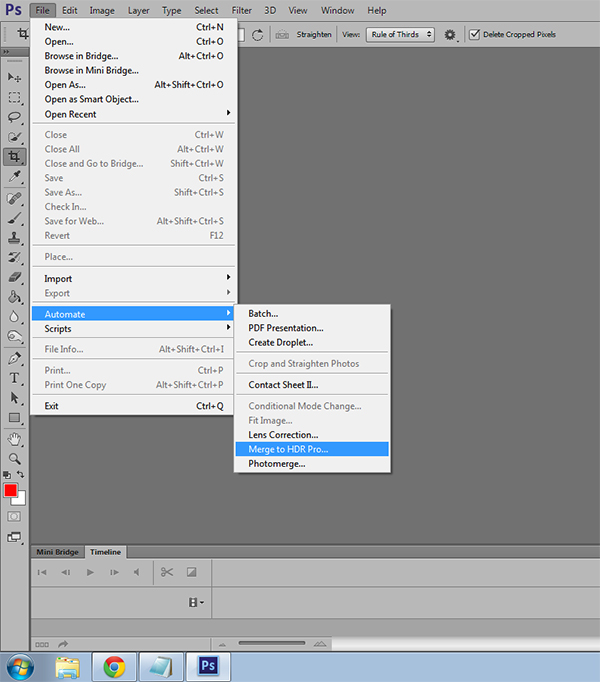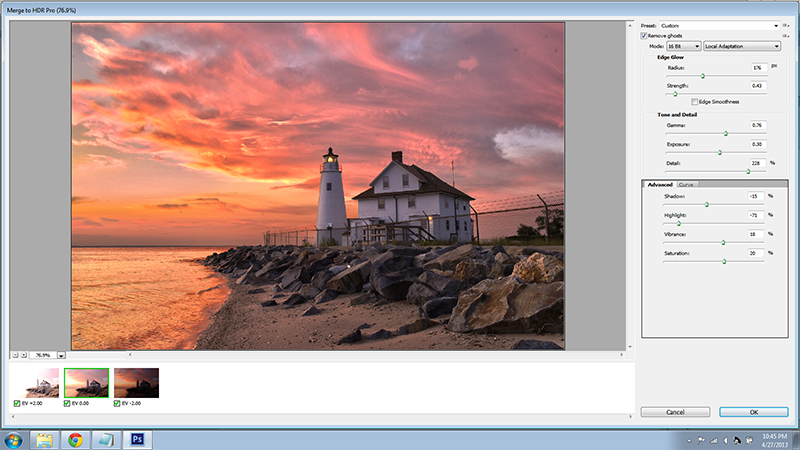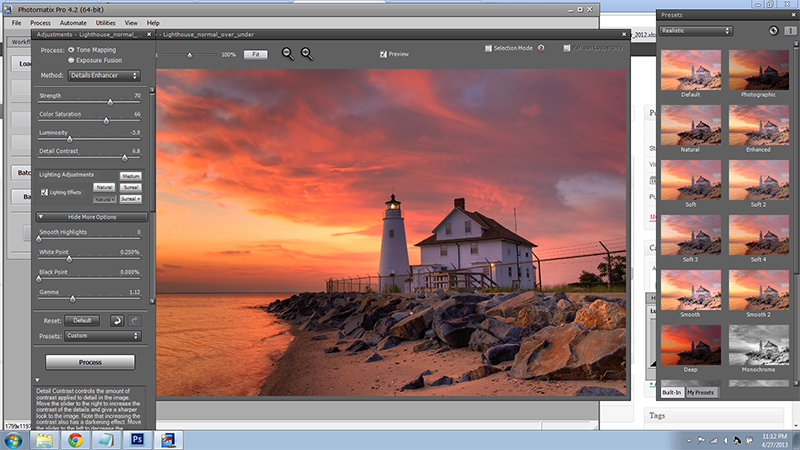Photomatix Vs Photoshop
If you decide to purchase any Photomatix product at some point, you will get a 15% discount on your purchase, by entering the coupon code “photoluminary” (without the quotes) into the Online order form.
Photoshop CS5 (now CS6) offers what is advertised as a substantially improved HDR feature, over past versions of the software. The HDR feature has been a part of Photoshop since CS2, but has generally been considered far inferior to other software such as Photomatix. Most photographers who use Photoshop have as a result chosen to use Photomatix and other HDR software.
Both Photoshop and Photomatix are connected to Lightroom, which is a plus. In Lightroom you can go the the “Photo” menu and choose Edit In >Merge to HDR Pro in Photoshop. You can export images from Lightroom to Photomatix Pro via the “File” menu, then Plug-in Extras > Export to Photomatix Pro.
As part of the process of researching this article, I looked up what others had to say on their experiences with Photomatix vs Photoshop HDR Pro. Most of what I found indicated that the HDR function in CS5 was more complicated to use than Photomatix, but that the noise reduction and deghosting were superior. Version 4 of Photomatix Pro has fixed that discrepancy however. I was already using version 4 of Photomatix Pro when I upgraded to CS5, so the noise removal and deghosting in Photoshop HDR Pro didn’t jump out at me as being superior in any way.
To create an HDR image in Photoshop, you would first need to go to File > Automate > Merge to HDR Pro.
 Photoshop CS6 HDR
Photoshop CS6 HDRYou can then choose your bracketed images and let Photoshop CS5 do its thing. This set of practice exposures can be downloaded from HDRsoft Here is my final result, still in the Photoshop Tone Mapping menu:
 Still in Photoshop Tone Mapping Menu
Still in Photoshop Tone Mapping MenuFinally, here is the saved and processed image:
 Final HDR Result Photoshop
Final HDR Result PhotoshopPrior to creating an HDR image in Photomatix, I would suggest first reading my comprehensive HDR Photomatix Pro tutorial.
Here is the final image, with my chosen settings, prior to processing:
 Photomatix Pro Prior to Processing
Photomatix Pro Prior to ProcessingFinally, here is the processed and saved Photomatix Pro result:
 Final HDR Result Photomatix
Final HDR Result PhotomatixFor the sake of comparison, here is the final result from Photoshop HDR next to the Photomatix result. Click the image to view it at full size:
 Photoshop and Photomatix Comparison
Photoshop and Photomatix ComparisonWhen I did this comparison in CS5, the Photomatix result was astoundingly better. Now, that difference isn’t as profound. I couldn’t get the high contrast look in the CS6 version that the Photomatix version has, while only in the HDR menu in Photoshop. However, I could have made further image adjustments in Photoshop and achieved the same result.
So, with the advent of CS6 I would actually recommend both Photoshop and Photomatix for processing HDR photographs.
If you would like to try Photomatix Pro, you can download a fully functional trial version from HDRsoft, which never expires but will leave watermarks on saved images.
Also, if you don’t yet have Photoshop, you can also download a trial of Photoshop CS6, which allows you to use the software for thirty days. The creative cloud is amazing and I am so happy to have a subscription to it myself.
If you do decide to purchase Photomatix at some point, you will get a 15% discount on your purchase, by entering the coupon code “photoluminary” (without the quotes) into the Online order form.



One Response to Photomatix Vs Photoshop